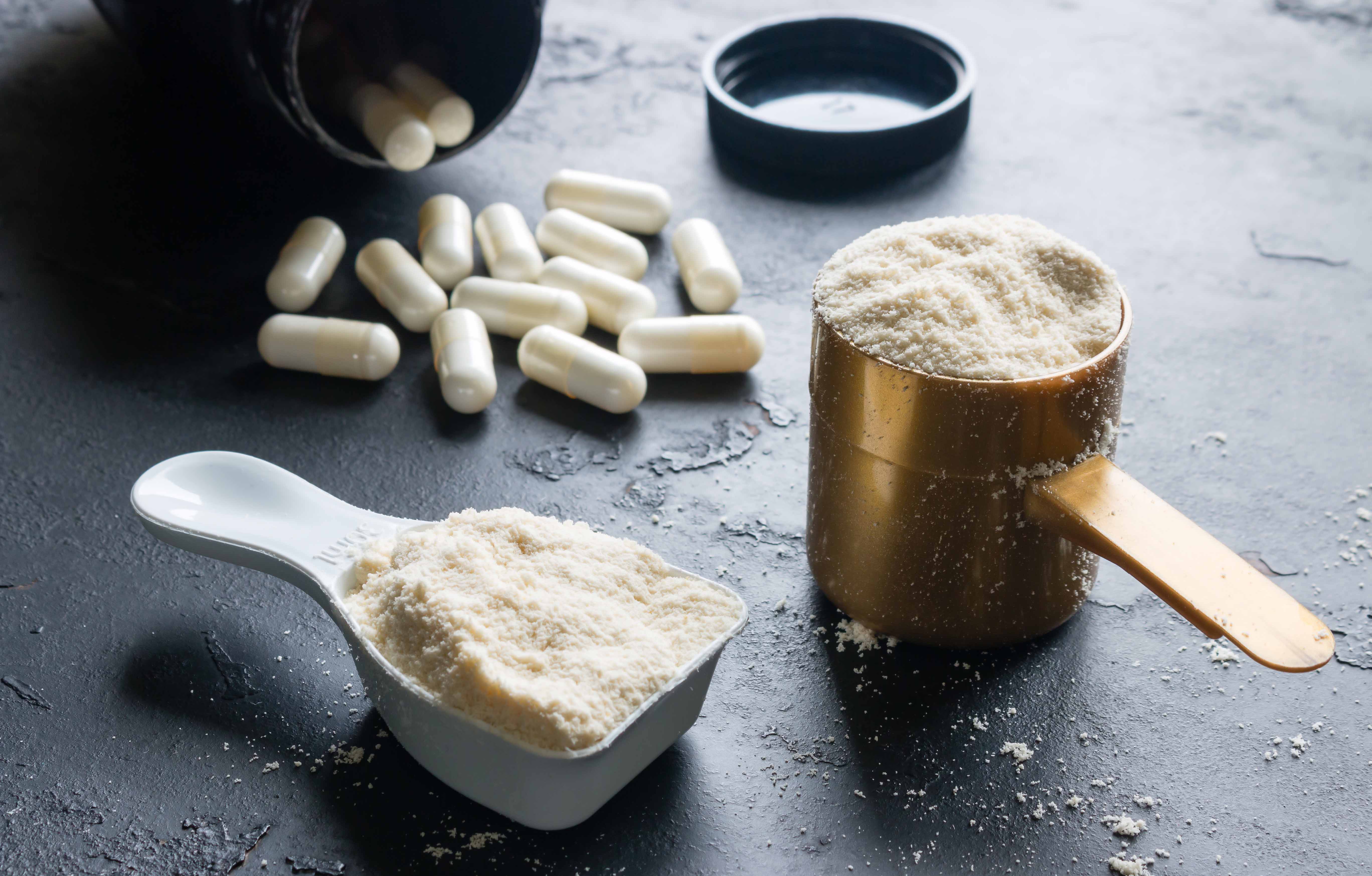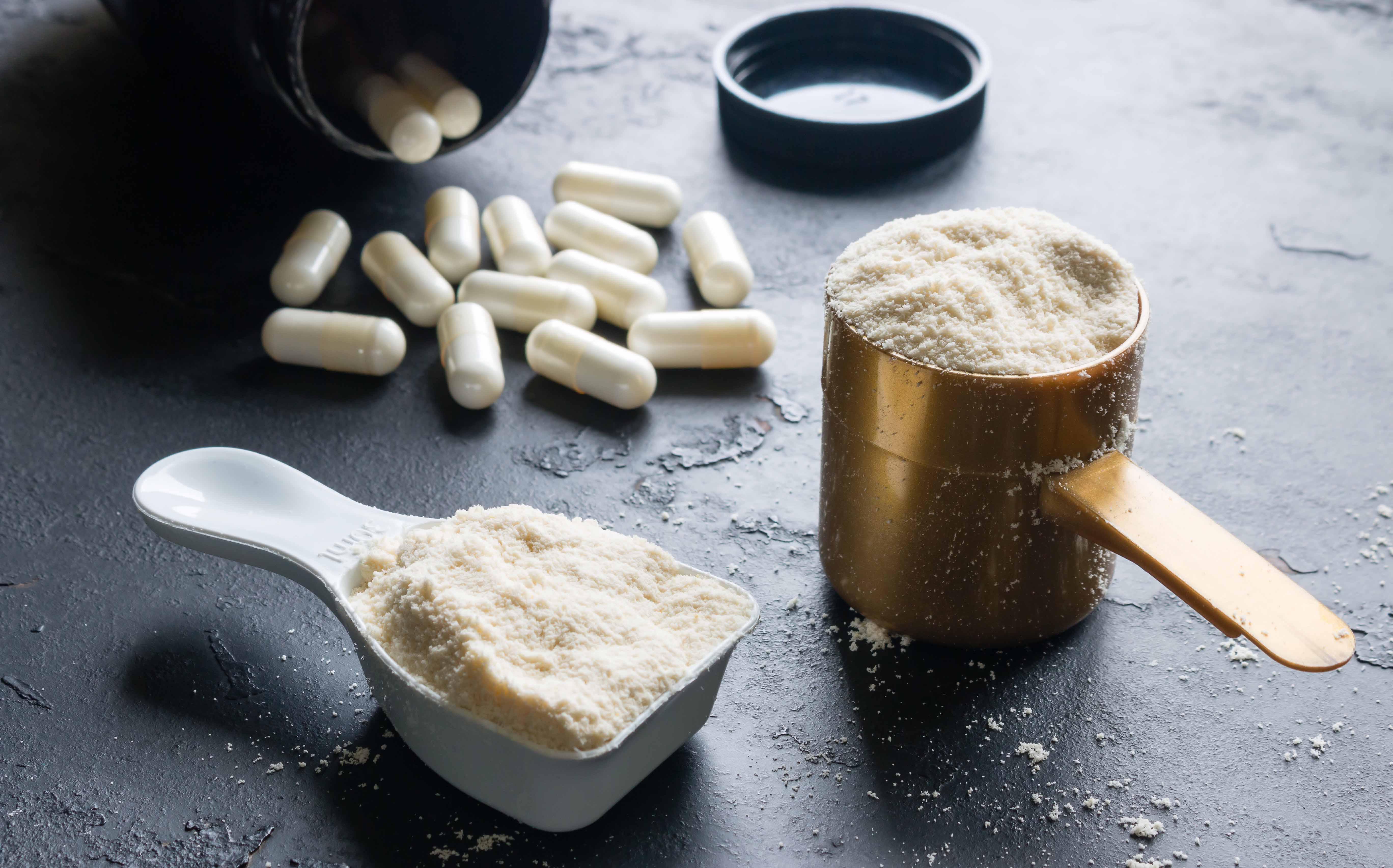What you need to know about collagen


Lately, you may be seeing collagen powders, pills, and bars popping up at your local health food stores. But what exactly is collagen and why is it becoming so popular?
Collagen is a type of protein found in all mammals. Out of all the proteins the human body makes, collagen is the most prevalent. In fact, scientists estimate that collagen makes up a whopping 30–40 per cent of the protein found in our bodies. Like all proteins, collagen is made from amino acids. As an incomplete protein, collagen contains all the essential amino acids with the exception of tryptophan.
Endogenous collagen
Endogenous collagen is collagen that has been naturally made by the human body. Although collagen is found all over the human body, it is largely used to maintain and repair the health of your joints, bones, skin, hair, and connective tissue. Collagen production begins to slow down during your early to mid–20s, causing skin to gradually lose its elasticity while slowly increasing the risk for joint and mobility issues. Considering the consequences of natural collagen loss, it’s no surprise collagen has been marketed so heavily as a supplement. The question is, does the actual data support the hype?
Supplementing with exogenous collagen
Sales of exogenous collagen—also known as synthetic collagen that is ingested from an outside source—are booming. Current compound annual growth rates predict worldwide sales of collagen supplements are expected to reach USD 6.63 billion dollars by the year 2025. There are many different types of collagen supplements, including but not limited to: capsules, powders, concentrates, gummies, and pre-made drinks. Bone broth, a type of hearty stock that contains animal bones and that has been simmered for 12–48 hours, is rich in gelatin (which is another name for collagen) and can now be found in the frozen aisle of many grocery stores across Canada.
Unfortunately, there is very little evidence to support the use of collagen supplementation. Studies that have been conducted on the efficacy of collagen supplementation have been small, inconclusive and are often funded by collagen supplement companies themselves (even with double-blind and randomized trials.) While there have been studies showing a positive correlation between collagen supplementation and relief from pain caused by osteoporosis and osteoarthritis, further studies are required to find the exact role exogenous collagen plays in this relief. This should come as no surprise because, again, the human body is self-sufficient in terms of producing its own collagen.
If you suffer from osteoarthritis and are interested in using nutra pharmaceuticals as a form of complementary medicine consult with your family doctor or rheumatologist for their expert recommendations.
Collagen and mood
As you’ll recall, collagen is missing the essential amino acid tryptophan. Tryptophan is a precursor to serotonin, a neurotransmitter that is responsible for—in addition many other important brain functions such as memory and learning—feelings of happiness and contentment. Ingesting collagen as your main form of protein can potentially lead to a deficit in tryptophan. A decrease in tryptophan results in lower serotonin levels and has the potential to cause feelings of anxiety, irritability, and depression (particularly if you already suffer from a mood disorder.)
